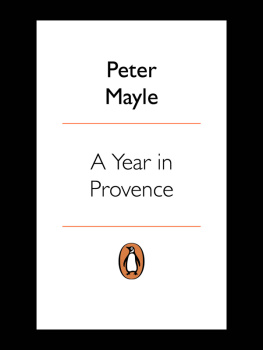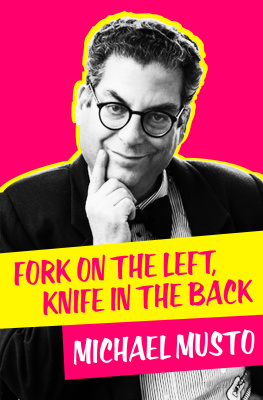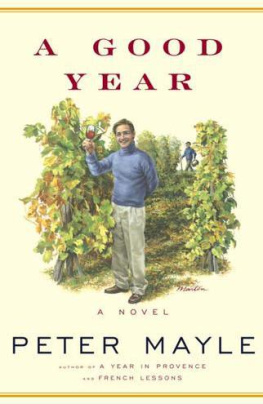Mayle - French Lessons: Adventures with Knife, Fork and Corkscrew
Here you can read online Mayle - French Lessons: Adventures with Knife, Fork and Corkscrew full text of the book (entire story) in english for free. Download pdf and epub, get meaning, cover and reviews about this ebook. year: 2003;2013, publisher: Knopf Doubleday Publishing Group, genre: Detective and thriller. Description of the work, (preface) as well as reviews are available. Best literature library LitArk.com created for fans of good reading and offers a wide selection of genres:
Romance novel
Science fiction
Adventure
Detective
Science
History
Home and family
Prose
Art
Politics
Computer
Non-fiction
Religion
Business
Children
Humor
Choose a favorite category and find really read worthwhile books. Enjoy immersion in the world of imagination, feel the emotions of the characters or learn something new for yourself, make an fascinating discovery.

- Book:French Lessons: Adventures with Knife, Fork and Corkscrew
- Author:
- Publisher:Knopf Doubleday Publishing Group
- Genre:
- Year:2003;2013
- Rating:3 / 5
- Favourites:Add to favourites
- Your mark:
- 60
- 1
- 2
- 3
- 4
- 5
French Lessons: Adventures with Knife, Fork and Corkscrew: summary, description and annotation
We offer to read an annotation, description, summary or preface (depends on what the author of the book "French Lessons: Adventures with Knife, Fork and Corkscrew" wrote himself). If you haven't found the necessary information about the book — write in the comments, we will try to find it.
Mayle: author's other books
Who wrote French Lessons: Adventures with Knife, Fork and Corkscrew? Find out the surname, the name of the author of the book and a list of all author's works by series.
French Lessons: Adventures with Knife, Fork and Corkscrew — read online for free the complete book (whole text) full work
Below is the text of the book, divided by pages. System saving the place of the last page read, allows you to conveniently read the book "French Lessons: Adventures with Knife, Fork and Corkscrew" online for free, without having to search again every time where you left off. Put a bookmark, and you can go to the page where you finished reading at any time.
Font size:
Interval:
Bookmark:
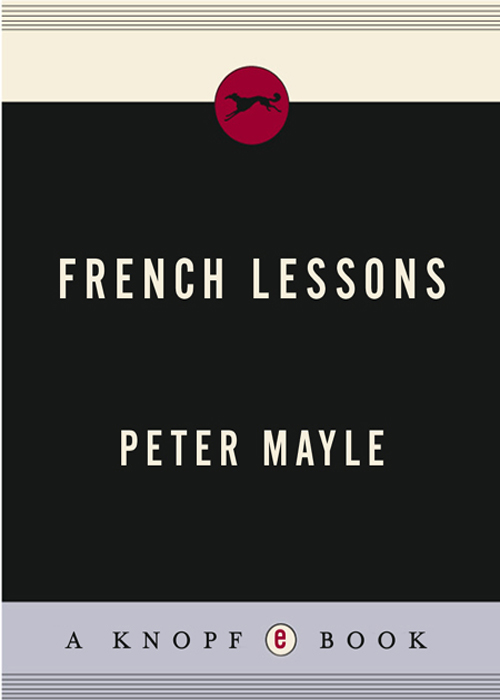
French
Lessons
Adventures with Knife, Fork,
and Corkscrew
PETER MAYLE
Vintage Departures
Vintage Books
A Division of Random House, Inc.
NewYork
Contents |
For Jennie
Hors dOeuvre
The preparation of this book has been an education, made possible by the help of many people. While I cant really thank them adequately, I would like to record my great gratitude to the kind souls who were so patient with my questions, so generous with their time and knowledge, and so hospitable.
In particular, Yves Rousset-Rouard, who took me under his wing during the truffle Mass at Richerenches; Marcel Loisant, the frog king of Vittel; the Lauzannes, who made me feel truly at home in Normandy; the Beuttlers, my friends and guides in Saint-Tropez; Sylvie Cazes-Rgimbeau at Pichon-Longueville; Jean-Louis Laville and Ren Jacqueson in Burgundy; Rgis and Sadler, two trusty companions with world-class appetites; and Alain Arnaud, the guardian of Michelins secrets. To them all, un trs grand merci.
My thanks also to Ailie Collins and Robin Massee, who did their invaluable best to make sure I was in the right places at the right times.
I cant pretend to have done more than scratch the surface of French gastronomy. But it has been an endlessly interesting, rewarding, and enjoyable scratch, even if I never made it to the turkey fair, the cabbage festival, or the homage to the herring. Perhaps next time.
P. M., January 2001
The InnerFrenchman
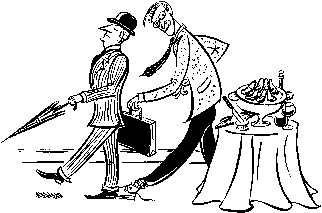
The early part of my life wasspent in the gastronomic wilderness of postwar England, when delicacies of thetable were in extremely short supply. I suppose I must have possessed tastebuds in my youth, but they were left undisturbed. Food was fuel, and in manycases not very appetizing fuel. I still have vivid memories of boarding schoolcuisine, which seemed to have been carefully color-coordinatedgray meat,gray potatoes, gray vegetables, gray flavor. At the time, I thought it wasperfectly normal.
I was in for a pleasant shock. Not long after Ibecame the lowliest trainee in an enormous multinational corporation, I wasinstructed to accompany my first boss, Mr. Jenkins, on a trip to Paris as hisjunior appendage. This was the way, so I was told, to start learning the ropesof big business. I should count myself lucky to have such an opportunity at thetender age of nineteen.
Jenkins was English and proud of it, English tothe point of caricature, a role I think he took some pleasure in cultivating.When going abroad, he announced his nationality and armed himself against theelements with a bowler hat and a strictly furled umbrella. On this occasion, Iwas his personal bearer, and I had been given the important task of carryinghis briefcase.
Before we left for the great unknown on the other sideof the English Channel, Jenkins had been kind enough to give me some tips ondealing with the natives. One piece of advice was a model of clarity: I shouldnever attempt to get involved with what he referred to as theirlingo. Speak English forcefully enough, he said, and they willeventually understand you. When in doubt, shout. It was a simple formula thatJenkins claimed had worked in outposts of the British Empire for hundreds ofyears, and he saw no reason for changing it now.
Like many of hisgeneration, he had very little good to say about the Frenchan odd lotwho couldnt even understand cricket. But he did admit that they knewtheir way around a kitchen, and one day he was graciously pleased to accept aninvitation from two of his Parisian colleagues to have lunch; or, as Jenkinssaid, a spot of grub. It was the first memorable meal of my life.
Wewere taken to a suitably English address, the avenue Georges V, where there was(and still is) a restaurant called Marius et Janette. Even before sitting down,I could tell I was in a serious establishment, unlike anywhere Id beenbefore. It smelled different: exotic and tantalizing. There was the scent ofthe sea as we passed the display of oysters on their bed of crushed ice, therich whiff of butter warming in a pan, and, coming through the air every timethe kitchen door swung open, the pervasiveand to my untraveled nose,infinitely foreignhum of garlic.
Jenkins surrendered his hat andumbrella as we sat down, and I looked with bewilderment at the crystal forestof glasses and the armory of knives and forks laid out in front of me. Thetrick was to start on the outside and work inward, I was told. But the correctchoice of cutlery was a minor problem compared to making sense of the elaboratemysteries described on the pages of the menu. What was a bargrill? What was a loup lcaille?And what in heavens name was aioli? All I had to help me wasschoolboy French, and I hadnt been a particularly gifted schoolboy. Idithered over these puzzling choices in a fog of almost complete ignorance, tootimid to ask for help.
Jenkins, quite unconsciously, came to my rescue.Personally, he said, I never eat anything I cantpronounce. He closed his menu with a decisive snap. Fish andchips for me. They do a very decent fish and chips in France. Not quite likeours, of course.
With a sense of relief, I said Id havethe same. Our two French colleagues raised four surprised eyebrows. No oystersto start with? No soupe de poissons? The company was paying; there wasno need to hold back. But Jenkins was adamant. He couldnt abide thetexture of oystersslippery little blighters was how hedescribed themand he didnt care for the way soup had a tendencyto cling to his mustache. Fish and chips would suit him very nicely, thankyou.
By this time, I was already enjoying a minor revelation, which wasthe bread. It was light and crusty and slightly chewy, and I spread on to itsome of the pale, almost white butter from the slab on a saucer in front of me.A slab. English butter in those days was highly salted and a lurid shade ofyellow, and it was doled out in small, grudging pats. At the first mouthful ofFrench bread and French butter, my taste buds, dormant until then, went intospasm.
The fish, a majestic creature that I think was sea bass, wasceremoniously presented, filleted in seconds with a spoon and fork, andarranged with great care on my plate. My previous experience of fish had beenlimited to either cod or plaice, heavily disguised, in accordance with theEnglish preference, under a thick shroud of batter. In contrast, the sea bass,white and fragrant with what I now know was fennel, looked curiously naked. Itwas all very strange.
Even the chips, the pommes frites,didnt resemble the sturdy English variety. These chips, a golden pyramidof them served on a separate dish, were pencil-slim, crisp between the teeth,tender to chew, a perfect foil for the delicate flesh of the fish. It was luckyfor me that I wasnt required to contribute to the conversation of myelders and betters; I was too busy discovering real food.
Then therewas cheese. Or rather, there were a dozen or more cheeses, another source ofconfusion after years of having only the simple choice of Cheddar orGorgonzola. I thought I recognized a vaguely familiar shape, safe andCheddar-like, and pointed to it. The waiter insisted on giving me two othercheeses as well, so that I could compare the textural delights of hard, medium,and creamy. More of that bread. More signals of joy from the taste buds, whichwere making up for lost time.
Next pageFont size:
Interval:
Bookmark:
Similar books «French Lessons: Adventures with Knife, Fork and Corkscrew»
Look at similar books to French Lessons: Adventures with Knife, Fork and Corkscrew. We have selected literature similar in name and meaning in the hope of providing readers with more options to find new, interesting, not yet read works.
Discussion, reviews of the book French Lessons: Adventures with Knife, Fork and Corkscrew and just readers' own opinions. Leave your comments, write what you think about the work, its meaning or the main characters. Specify what exactly you liked and what you didn't like, and why you think so.

